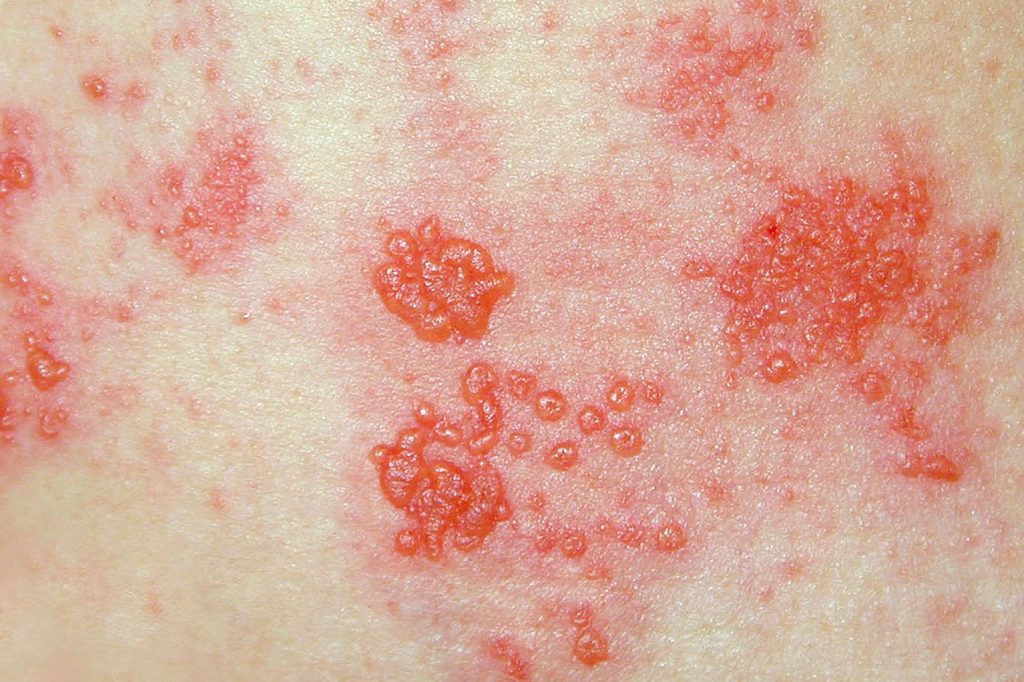Infection Prevention and Control Team
Lanchester Road Hospital
Lanchester Road
Durham
DH5 1RD

Phone: 0191 333 3584
Email: tewv.ipc@nhs.net
What is shingles?
Shingles is caused by the chickenpox virus and is an infection that causes a painful rash.
Shingles can last for around 2 to 4 weeks.
Signs and symptoms?
- Tingling or painful feeling on the skin (this may happen several days before the rash appears).
- A headache, feeling generally unwell, chills and upset stomach.
- A rash occurs in a single stripe or blotches around either the left or the right side of the body.
- In other cases, the rash can occur on one side of the face.
- The rash then develops into itchy blisters.
How did I get shingles?
When people have had the chickenpox virus it remains in the body. It can be reactivated later and cause shingles due to a change in a person’s immune system. This could include stress, certain conditions, or treatments like chemotherapy.
It is possible to have shingles more than once, but rare to have it more than twice.
How does it spread?
You cannot spread shingles to others, but people who have not had chickenpox before could catch chickenpox from you. This is because shingles is caused by the chickenpox virus.
How is shingles treated?
Several antiviral medicines are available to treat shingles and shorten the length and severity of the illness. You should begin to take these medications as soon as possible after the rash appears.
In healthcare premises you may be nursed in a single room if there is a risk of infection to other patients. For any discomfort or pain, you can be prescribed painkillers.
If you think you have been exposed to someone who has shingles and you are either pregnant or have a weakened immune system and have not had chickenpox before, please contact your doctor.
Do
- Do take paracetamol to ease the pain.
- Do keep the rash covered, clean and dry to reduce risk of infection.
- Do wear loose fitting clothing.
- Do use a cool compress a few times a day.
- Do wash hands after touching the rash.
Don’t
- Don’t let dressings or plasters stick to the rash.
- Don’t use antibiotic cream as this slows the healing.
- Don’t share towels or face cloths.
When can I return to work/school?
You should not attend work or school if your rash is still weeping (oozing fluid) and cannot be covered, or until the rash has dried out.
Where can I get further information?
If you require further information, please ask the ward staff or the infection prevention and control nurse.
L1171, v1, 25/04/2022 (archive 25/04/2025)